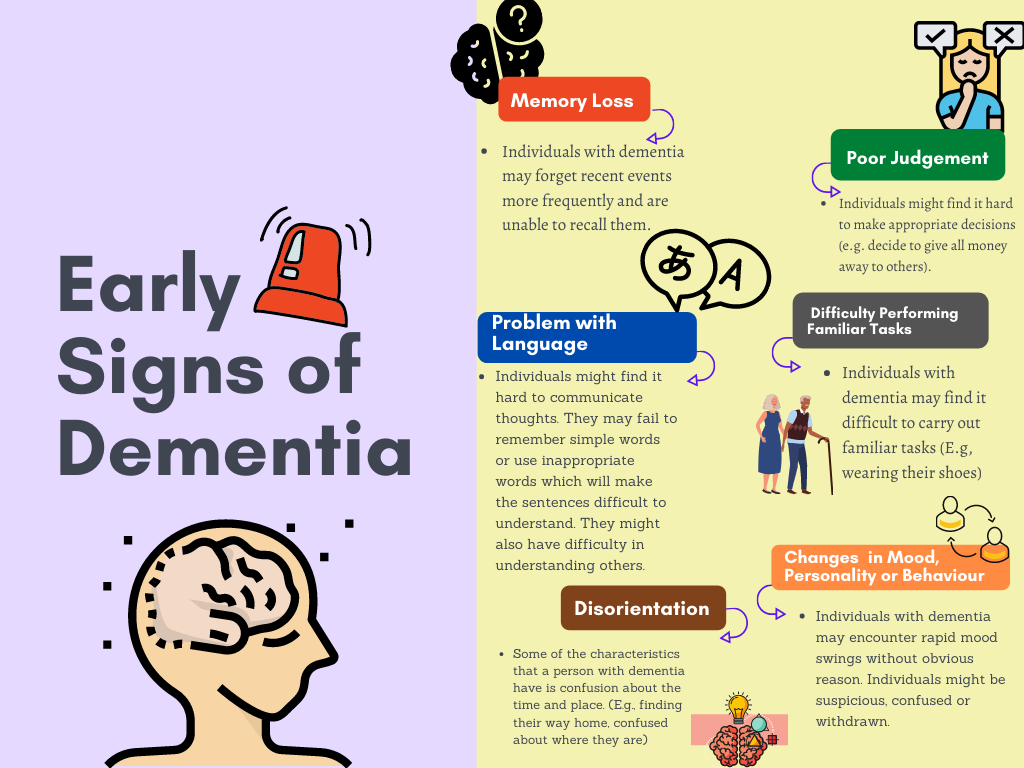
“Adding Years to Life, Life to Years”
Treating Dementia does not end with prescription. As People with Dementia experience a decline in mental abilities, the feeling of being vulnerable sets in requiring reassurance and support.
Continuous assistance and service becomes a need that has to be addressed and retaining a sense of identity and the feeling of self-worth becomes paramount.
“Lets help them to see the dark days in a brighter light’
Dementia is a term used to describe the symptoms of different diseases and conditions that affect the brain cells.There is no cure for these diseases but special medical treatment is available. Early diagnosis and treatment are quite important to handle symptoms and to release stress for the affected ones and their caregivers. If you are unsure whether or not a loved one is affected by dementia, you are welcome to participate in this survey. If the test confirms your assumption, please refer to a doctor for a definite diagnosis.
Dementia mainly occurs in people above 65, but still there are quite a number of affected people younger than 65.
While there is an unaccountable amount of different diseases that lead to dementia, the most common ones are Alzheimer’s Disease and Vascular Dementia. Common Symptoms for both are:
- lapses of memory, difficulties to remember recent events
- problems with communication, e.g. finding the right words or following the conversation; understanding phrases they’ve been told
- difficulties to concentrate, and problems with speed of thinking
- mood swings or personality changes
- misplacing things
- loss of initiative
- difficulties of performing familiar and routine tasks
with the time as the disease advances they might also
- get confused, wander off and get lost
- be restless, get up in the middle of the night
- get incontinence
- forget the faces of their closest family members
- become depressed
In severe cases Alzheimer’s disease affected people sometimes may lose their understanding for suitable behaviour, such as suddenly undressing in public.
Alzheimer’s Disease: Due to this disease nerve cells in the brain start dying and cause the shrinking of the brain. Also it is known that there’s a shortage of some certain chemicals that are important for the brain.
While Alzheimer’s affected ones often experience a subtle beginning of their disease, vascular disease mostly has a sudden beginning.
Vascular Disease: often starts with a stroke. A stroke can cause the oxygen supply to some parts of the brain to stop – which leads to the death of brain cells. Sometimes this leads to a series of mini strokes and vascular disease.
The progress of the disease goes together with the mini strokes. Often these mini strokes are so slight that they cause no immediate symptoms and don’t get noticed.
In other cases the symptoms may remain at a certain level for quite a long time.
Typical Symptoms for Vascular Disease are also:
- visual mistakes
- physical weakness and paralysis (general symptoms of strokes)
- unsteadiness and difficulties with walking
- hallucinations and delusions
- psychological symptoms
Alzheimer’s Disease and Vascular Disease often occur together in combination. However, these two Diseases only cause 90% of the Dementia cases. That’s why it is so important to seek advice by specialists who can make a more precise diagnose.




